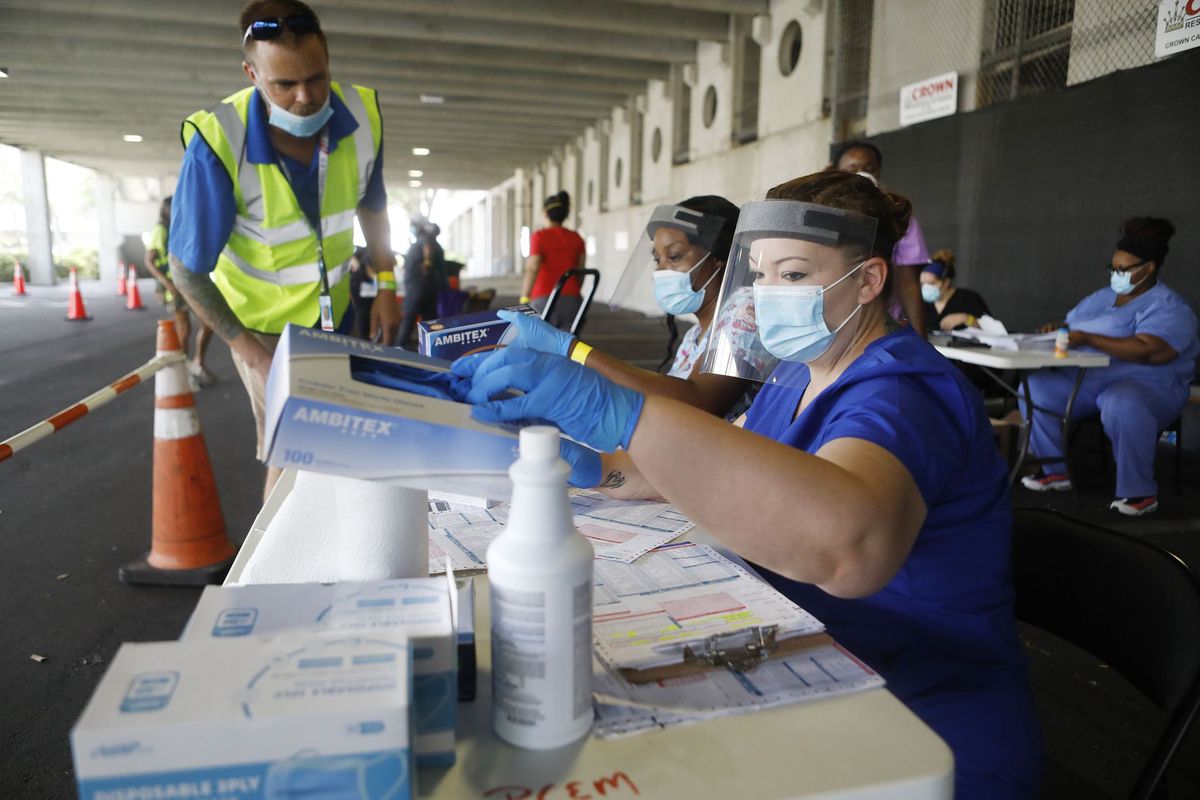Survey finds rise in virus-news skepticism
By MAY ZHOU in Houston | China Daily Global | Updated: 2020-07-09 10:48

A survey by Pew Research Center revealed that more Americans said they have concerns over COVID-19 news — finding it exaggerated, partisan, harder to tell truth from falsehood — and that they are paying less attention to it three months after the pandemic's outbreak.
The survey, conducted among 9,654 American adults between June 4 to 10, asked people a series of questions about their views on COVID-19 and related news at the beginning of the outbreak and then again three months later.
Americans are getting tired of COVID-19 news: 85 percent of those surveyed said they followed news of the novel coronavirus closely at the beginning of the outbreak, but 57 percent said they are spending less time following such news now.
In addition, more Americans now believe that the COVID-19 situation is exaggerated. The share of Americans who said the coronavirus outbreak "has been made a bigger deal than it really is" increased from 29 percent to 38 percent.
The increase is particularly steep among Republicans: 47 percent said so in late April, compared with 63 percent in early June. The share of Democrats who said the outbreak has been overhyped increased only slightly, from 14 percent to 18 percent.
The survey investigated five types of information sources, including federal and local government as well as media outlets and public health organizations. The US Centers for Disease Control and Prevention (CDC) got the biggest vote of confidence, and the Trump administration got the lowest.
About 64 percent of Americans said that the CDC and other public health organizations get the facts of the coronavirus outbreak right "almost all" or "most" of the time, while only 30 percent said the same about Trump and his administration.
A solid majority of Americans, 65 percent, said the White House gets the facts right only "some of the time" (29 percent) or "hardly ever" (36 percent).
Again, there is a sharp divide between Republicans and Democrats. Just 9 percent of Democrats said that Trump and his administration got coronavirus facts right while 54 percent of Republicans said so.
While 76 percent Democrats and independents leaning toward the Democratic Party said the CDC and other health organizations got the facts right, only 51 percent Republicans said so.
Media outlets are trusted more than the Trump administration, but the disparity along party lines is strong. About 50 percent of Democrats said the national media outlets got the facts right almost all or most of the time, while only 25 percent of Republicans said so.
A rare point of agreement occurred over partisanship: 41 percent of Americans viewed coronavirus news as getting more partisan, and the ratio is about the same for respondents from both parties. At the beginning of the outbreak, only 22 percent Americans considered the news as partisan.
Consequently, 38 percent of Americans said it has become harder to identify what is true and false about the outbreak. About 30 percent said it has become easier over time, and a similar share, 31 percent, saw no change in their ability to discern truth from falsehood.
Partisan differences are manifested in this aspect, too. Republicans were more likely (47 percent) than Democrats (31 percent) to say it has become harder to figure out what is true.
Those who rely most on Trump and the White House for coronavirus news are predominantly Republican: 92 percent.
Among Republican, 47 percent of those aware of the existence of the conspiracy theory that the pandemic was deliberately planned believe the theory while the average for all respondents familiar with the theory is 36 percent.
























